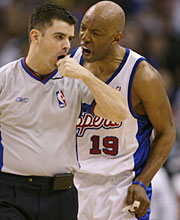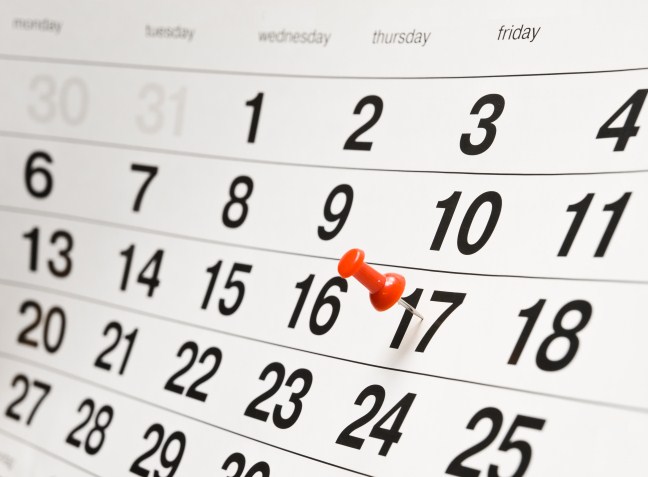Følgende gode råd fant vi på en nettside nylig og de 7 tipsene er vel verdt å tenke litt på både for dommere og for coacher og spillere. Kanskje man kan spare seg for mye unødvendig frustrasjon og samtidig kunne fokusere mer på de faktorene i kampen man virkelig kan gjøre noe med.
 Artikkelen er på engelsk, og det er grunnleggeren av websiden, Coach Mac, som gjerne vil dele disse tipsene med oss via basketballforcoaches.com:
Artikkelen er på engelsk, og det er grunnleggeren av websiden, Coach Mac, som gjerne vil dele disse tipsene med oss via basketballforcoaches.com:
Dealing with referees:
1. Understand That They’re Human
Referees aren’t perfect. Just like you and I aren’t either. They’re not going to make the correct call 100% of the time. Just like you and I aren’t going to make the correct coaching decision every single time.
Just because they make an incorrect call doesn’t mean they need to ‘get their eyes checked’ or ‘learn the rule book’.
Stop expecting perfection and start expecting consistency.
2. You Both Have Different Angles On The Play
While you are both watching the same game, you will always have a different angle on the play from the referee.
Sometimes you’re going to see things that the referee misses, and sometimes they’re going to see things that you miss.
3. Set An Example
Your role as a basketball coach extends much further than merely winning games.
Whether you like it or not, as a basketball coach you are a role model to your players. They look up to you.
If they see you being overly angry at the referee’s, you can bet they won’t be far behind you.
Don’t teach them bad habits. Teach them to stay under-control and fight through it mentally when things aren’t going their way.
4. Players Never Argue
One of the most important rules on all of my teams is that players never argue with the referee’s.
As I pointed out in number three, by not allowing your players to argue, it teaches them self-control.
Not every call in basketball is going to go their way. Just like not everything in life is going to go their way either. Learning how to deal with this is an important skill for all players to learn.
5. Remember Your Role
One of the biggest problems I notice in coaches without much experience is that they often get caught up dealing with the referee’s and forget what their role is in the game.
Your role is to coach. Remember that. Don’t let the referee’s affect your ability to coach.
6. Adjust to The Referees
As long as the referees are making calls consistently at both ends of the floor, it’s up to you to adjust your game plan to their style of refereeing.
For example, some referees allow the players to play tougher in the paint than other referees do.
Everyone’s heard the phrase ‘take what the defence gives you’, right? Well in some ways that rule also applies to referee’s, ‘take what the referee’s give you’. Adjust your coaching style to suit the way they’re calling the game.
7. Never Blame Losses on the Referees
Never blame a loss on the referees. Especially to your players.
By finding an external force to blame for the loss, the players dodge being held accountable for the loss.
If they accept accountability, they accept that the other team was simply a better side which will motivate them to improve. However, if they blame the referee’s for the loss, they have no motivation to improve their game.
Rather, let your players know that the game is not won and lost in the dying seconds of the game. If they had made one extra shot, or one extra hustle play during the first 46 minutes of play, the game would have been out of reach for the other team.
- Coach Mac

